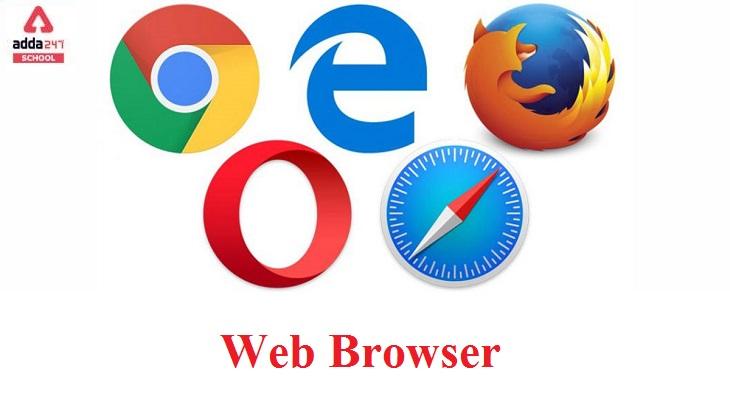Table of Contents
Web Browser Definition in English
Web Browser Definition is explained here. A web browser is a software and this software allows you to access the World Wide Web. The web browser retrieves the content from a web server and displays it on the user’s device when a user requests a web page from a certain website.
Read also USB Full Form
What is Web Browser and Search Engine?
Despite the fact that the two are frequently confused, a web browser is not the same as a search engine. A search engine is a web page that contains links to other online pages. However, in order to connect to a website’s server and access its web pages, a user must have a web browser installed.
Web browsers are used on PCs, laptops, tablets, and smartphones, among other devices. A browser was used by 4.9 billion people in 2020, according to estimates.
Also Read About URL
Web Browser Definition History
Sir Tim Berners-Lee developed the first web browser, WorldWideWeb, in 1990. He subsequently enlisted the help of Nicola Pellow to create the Line Mode Browser, which was introduced in 1991 and allowed users to see websites on dumb terminals.
Mosaic, dubbed “the world’s first popular browser,” was released in 1993, making it a watershed year. Its user-friendly graphical interface made the World Wide Web system more accessible to the general public. As a result, the Internet boom of the 1990s began, with the Web expanding at a breakneck pace. The Mosaic team’s leader, Marc Andreessen, went on to found his own business, Netscape, which introduced the Mosaic-influenced Netscape Navigator in 1994.
Navigator soon rose to prominence as the most widely used browser.
In 1995, Microsoft released Internet Explorer, sparking a browser battle with Netscape. Because it included Internet Explorer with its successful Windows operating system as freeware with no limits on usage, Microsoft was able to achieve a dominant position. Internet Explorer eventually reached a market share of almost 95% in 2002.
In 1998, Netscape founded the Mozilla Foundation in order to develop a new browser based on the open-source software concept. Mozilla introduced the Firefox browser in 2004 as a result of this work. In 2011, Firefox had a 28 percent market share.
In 2003, Apple debuted the Safari browser. It is still the most popular browser on Apple devices, despite its lack of popularity elsewhere.
Google released the Chrome browser in 2008, and it quickly surpassed Internet Explorer as the most popular browser in 2012. Since then, Chrome has been the most popular browser.
The HTTPS Everywhere extension was published in 2011, while the NoScript plugin won several honours. The stable version of Tor Firefox for accessing the dark web was released by Mozilla the same year.
In 2015, Microsoft released the Edge browser as part of the Windows 10 operating system.
Also Read Mansoon Season
What is web browser security?
Hackers frequently target web browsers, exploiting security flaws to steal information, damage files, and engage in other unwanted activities. Browser producers repair these security gaps on a regular basis, so users are strongly advised to maintain their browser software up to date. Antivirus software and avoiding known-malicious websites are two more safeguards.



 NEET City Intimation Slip 2025 Available...
NEET City Intimation Slip 2025 Available...
 Assam HS Result 2025 Out Today, Check AH...
Assam HS Result 2025 Out Today, Check AH...
 TS 10th Results 2025 OUT Today, Check BS...
TS 10th Results 2025 OUT Today, Check BS...










